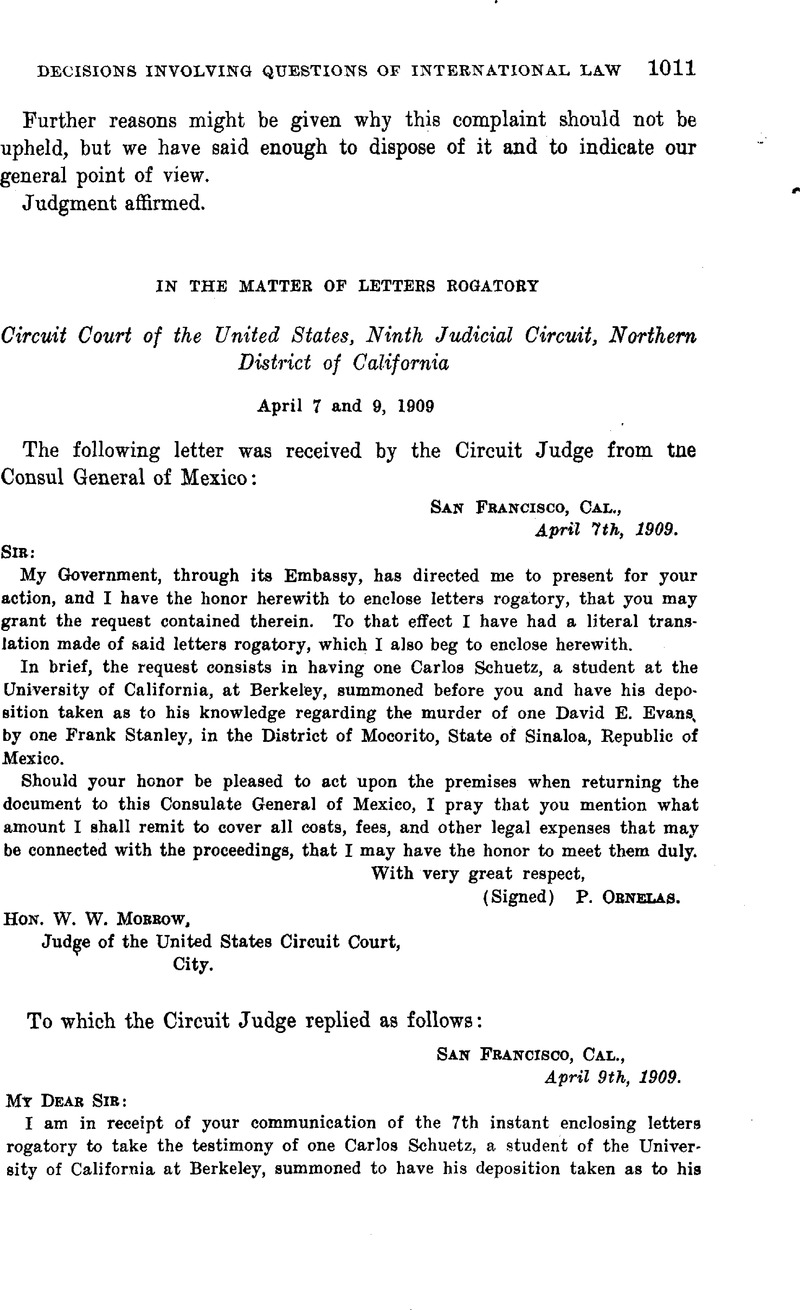A Thorough Review of Letters Rogatory and Their Legal Implications
A Thorough Review of Letters Rogatory and Their Legal Implications
Blog Article
The Duty of Letters Rogatory in International Legislation: Secret Insights
Letters rogatory work as a critical tool in worldwide regulation, facilitating cross-border lawful assistance by allowing jurisdictions to formally request evidence and actions from one another. Rooted in historical criteria and defined via agreements like the 1970 Hague Convention, these requests are important for promoting worldwide teamwork. Nevertheless, their implementation typically experiences substantial hurdles, consisting of discrepancies in lawful criteria and step-by-step hold-ups, which can impede their efficacy. Understanding the subtleties of this process raises essential inquiries concerning worldwide collaboration and the possible reforms required to enhance its integrity. What ramifications might these challenges have for future lawful procedures?
Meaning of Letters Rogatory
In the realm of global law, letters rogatory work as formal demands issued by a court in one territory to seek help from a court in another territory. Letters rogatory. These requests are especially significant in cross-border lawful proceedings, where the enforcement of a court's order or the celebration of evidence might be hindered as a result of jurisdictional constraints

The procedure normally requires the asking for court to express the certain information or activity needed from the foreign court, sticking to the legal protocols and conventions developed between the jurisdictions entailed. Once released, the letters rogatory are transferred through polite channels, which may consist of consulates or consular offices, to make certain that the request is recognized and acted on by the foreign court. Generally, letters rogatory exemplify the participating framework crucial for efficient international lawful processes.
Historic Context
Although the practice of letters rogatory has old roots, its formalization within the structure of international regulation emerged dramatically in the 20th century. Historically, such ask for judicial aid were used in numerous legal practices, including Roman legislation, where they facilitated cross-border participation in legal issues. The concept got renewed focus with the rise of globalization and the raising complexity of worldwide lawful interactions.
The mid-20th century saw the facility of treaties and conventions that sought to standardize the procedure of letters rogatory. Notably, the 1970 Hague Convention on the Taking of Proof Abroad in Civil or Business Matters provided a structured technique, boosting the efficiency of these requests - Letters rogatory. This period marked a shift from informal plans to a more methodical structure, which resolved the challenges positioned by varying nationwide lawful systems
As states came to be more interdependent, the requirement for reliable devices to collect proof throughout borders emerged, strengthening the role of letters rogatory in assisting in worldwide participation. Today, they continue to be a crucial instrument for acquiring evidence and guaranteeing that justice transcends national limits, showing the developing nature of global regulation in feedback to international obstacles.
Process of Issuing Requests
The process of issuing letters rogatory usually includes a number of vital steps developed to guarantee that ask for judicial support are clear, particular, and compliant with both domestic and global lawful requirements. At first, a party seeking aid has to prepare an official request that describes the why not try here important facts of the case, the alleviation looked for, and the particular evidence or testament called for. This document has to be crafted with precision to this meet the lawful demands of the territory in which it will certainly be submitted.
Adhering to the preparation of the demand, it is submitted to the appropriate authority, usually a court or an assigned governmental agency. This authority assesses the request to ensure it abides by legal standards and procedural norms. Once authorized, the request is transferred to the foreign jurisdiction through diplomatic networks.
Upon receipt, the international court evaluates the demand's compliance with its regional laws and techniques (Letters rogatory). If accepted, it proceeds to carry out the request, which might involve the issuance of subpoenas or the collection of evidence. Throughout this procedure, maintaining clear interaction in between the requesting and receiving territories is important to ensure successful participation and the fulfillment of the demand
Obstacles and Limitations
Difficulties and constraints often emerge in the process of carrying out letters rogatory, usually stemming from varying lawful systems and treatments between jurisdictions. One considerable challenge is the differing criteria of admissibility for evidence, which can result in issues in the approval of documents requested through letters rogatory. Additionally, the lack of uniformity in legal terms and meanings can develop misconceptions, complicating communication between courts in different nations.
Additionally, hold-ups are usual as a result of bureaucratic processes, as the request may need to go through multiple layers of legal authorities before it is fulfilled. In some instances, the requested jurisdiction may lack the necessary resources or willingness to cooperate, even more hindering the process. Language barriers additionally add to obstacles, as exact translation of lawful papers is vital for making sure that the designated message is communicated without distortion.
Finally, sovereignty issues may arise, as some states are reluctant to abide by demands that they view as infringing upon their legal autonomy. These challenges highlight the intricacies integral in using letters rogatory, requiring greater harmonization and cooperation amongst worldwide anchor legal systems to boost their performance.

Influence On International Participation
Recognizing the importance of letters rogatory in promoting global cooperation is vital, as these demands facilitate cross-border legal support and advertise joint efforts in civil and criminal issues. By making it possible for one jurisdiction to formally request support from one more, letters rogatory produce an organized lawful framework that enhances the efficiency of worldwide communication in between judicial authorities.
Making use of letters rogatory aids to develop mutual trust and respect among nations, which is vital in a significantly interconnected world. They act as a mechanism not only for collecting evidence but also for ensuring that legal procedures are maintained across borders. This is particularly important in combating global criminal activity, where the failure to secure cooperation can weaken justice.
In addition, the reliance on letters rogatory can improve complicated legal proceedings, reducing hold-ups and unpredictabilities in worldwide investigations. The step-by-step safeguards integral in this procedure add to the protection of specific legal rights while assisting in collaboration among states. Inevitably, the effect of letters rogatory on international participation emphasizes their function as vital devices in the promotion of justice, cultivating a collective spirit that transcends lawful systems and national borders.
Final Thought
In conclusion, letters rogatory serve as an essential instrument in worldwide regulation, facilitating cross-border legal aid and cooperation. The continued advancement of these devices is important for improving the performance of international lawful procedures, ultimately promoting more powerful collaboration in both criminal and civil issues across territories.
Letters rogatory offer as a critical tool in international regulation, facilitating cross-border legal help by permitting territories to officially request proof and activities from one another.The process typically needs the asking for court to express the certain details or activity required from the international court, sticking to the lawful methods and conventions established between the territories entailed. Historically, such demands for judicial aid were utilized in various legal traditions, including Roman law, where they helped with cross-border participation in legal matters.The procedure of issuing letters rogatory typically entails a number of essential steps designed to guarantee that requests for judicial assistance are clear, specific, and certified with both worldwide and domestic legal standards.In addition, hold-ups are typical due to bureaucratic processes, as the demand may need to pass via several layers of legal authorities prior to it is satisfied.
Report this page